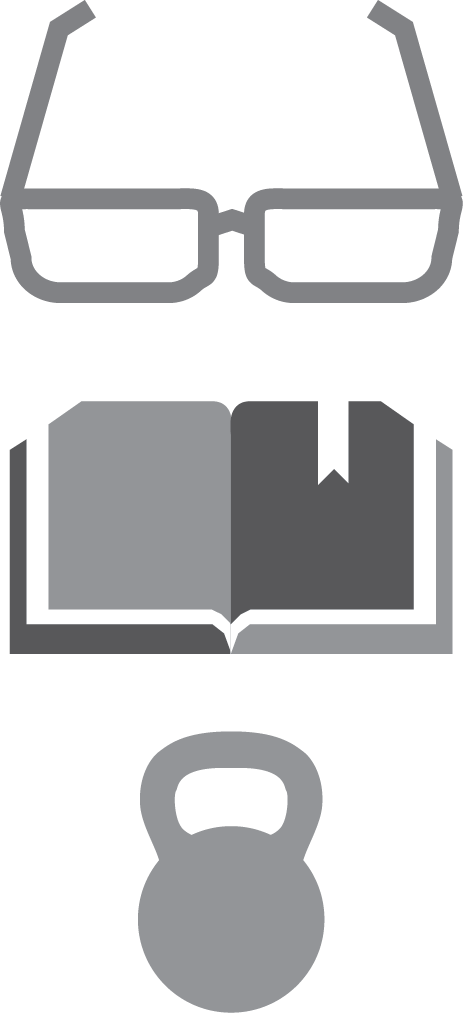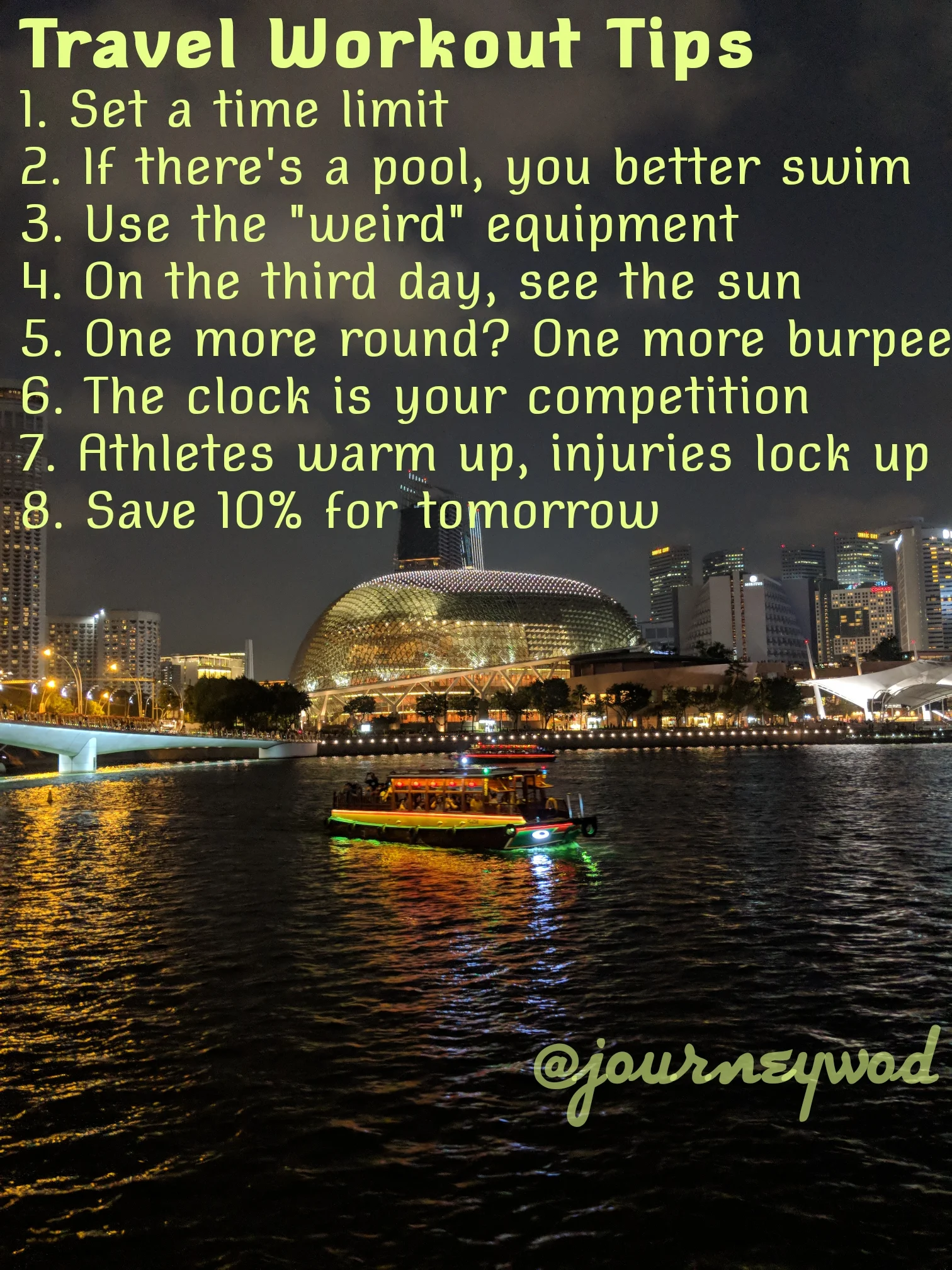Travel Workout Tips
For better or worse, I’m getting to travel for work more and more these days. Here are a few tips for making the most of your hotel gym away from home.
1. Set a time limit
Decide before you walk in the gym how long you have to work out. It’s easy to wander in circles wondering which of the broken equipment you should avoid or which of the novel equipment you should include in your workout.
2. If there's a pool, you better swim
This is more of a philosophy than making sure you swim. Use the opportunity to work on a weakness. For a lot of people, swimming is a weakness because they just don’t get to do it often. Working on swimming away from home is something to keep in mind, because although it will be difficult to lift heavy or do the workouts you’re used to, by focusing on a weakness you can still make progress.
3. Use the "weird" equipment
Your workout is meant to be fun. Fun often means not having an expectation of what score you’re “supposed” to get. So hop on that recumbent bike, do some bicep curls, jump on that weird Bosu ball thing that’s been sitting there for 10 years. Have fun, and do something weird.
4. On the third day, see the sun
You’re on a trip. See the surroundings. Get outside on a run, or just go for a walk. If you’re on a work trip grinding, most likely you won’t get too much chance to wander. If after 3 days, you haven’t been outside, revise your workout plans to include a run or just bring the dumbbell outside.
5. One more round? One more burpee.
If you don’t know what to do, do a burpee. You can do a burpee in your hotel room without workout gear. You can do a burpee on the sand without equipment. You can do a complicated burpee variation that includes whatever’s around you. Be creative, but don’t make paralyze yourself with choices.
The other side of this is nutrition - ask yourself if you would do a burpee if you had one more drink or one last handful of fries. If you wouldn’t want to do a burpee after one more round, probably a good idea to call it quits. Enjoy yourself, but don’t get out of control.
6. The clock is your competition
It’s hard to stay motivated by yourself. If you don’t know how long a workout should take, time your first round and try to beat it on the next one. Set a goal for every minute or every five minutes. Look at your past results, and try to beat those. The clock can be your friend, if that’s what you need.
7. Athletes warm up, injuries lock up
You’re still an athlete, even though the heaviest weight in the room is 12.5 pounds. Athletes are smart and warm up, no matter what they’re doing. Getting injured using a light weight is still possible, so be smart and still warm up, even though no one’s watching.
8. Save 10% for tomorrow
You made it to the gym. Congrats! But it’s still day 2 of a 4-day trip. You can crank up the intensity if you want to using the steps above, but your overall goal with travel workouts is to maintain your fitness level and return home without a major setback. So save a little bit for tomorrow.





























